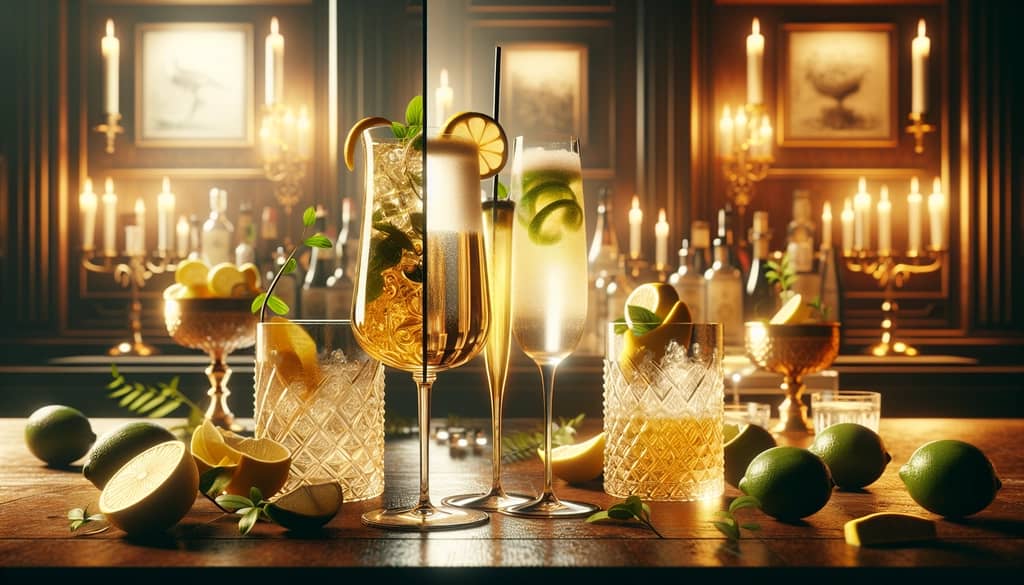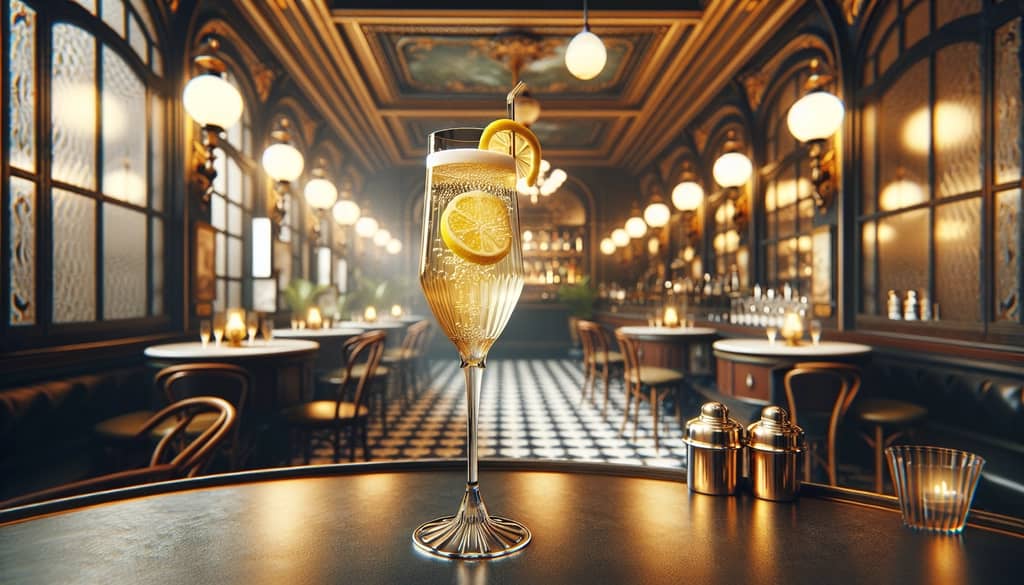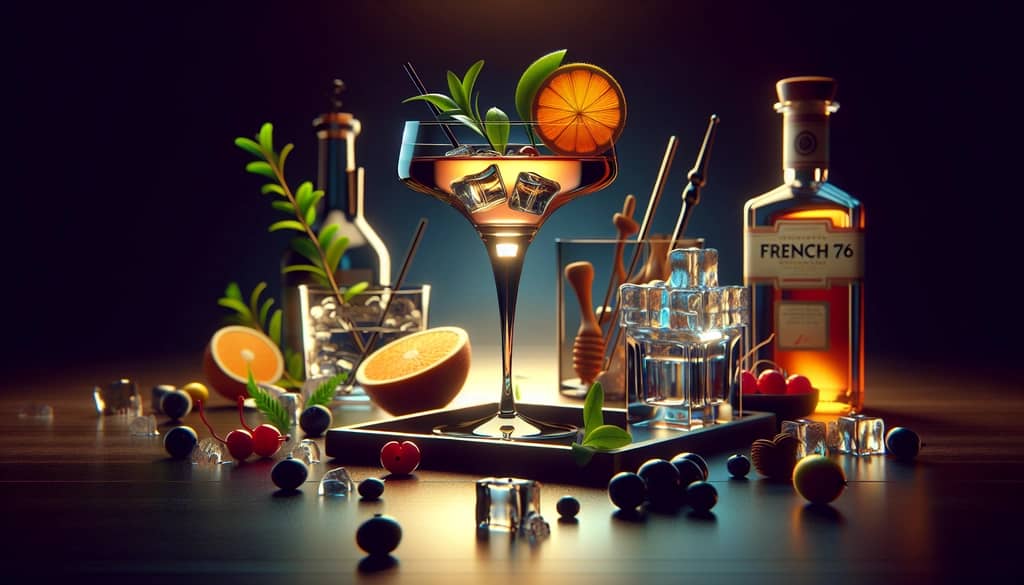Updated on: 6/3/2025
French 76 vs. French 75: Comparing Two Timeless Effervescent Classics

In the world of cocktails, the French 76 and French 75 are two sophisticated, effervescent drinks that have graced countless soirees and celebrations. Despite their shared first name, these cocktails have distinct identities rooted in unique ingredients, flavor profiles, and rich historical contexts. Whether you're a cocktail enthusiast or a curious newcomer, understanding the nuances between these two beloved classics can elevate your appreciation of sparkling beverages and refine your next drink choice.
Fast Facts:
- French 75: A classic cocktail with gin, lemon juice, sugar, and champagne, balancing botanicals with citrusy elegance.
- French 76: A refined variation using vodka instead of gin, offering a smoother, more neutral flavor profile.
- Historical Roots: The French 75 dates back to WWI, named after the powerful French 75mm field gun, while the French 76 emerged in more contemporary settings.
- Flavor Profile: French 75 is known for its botanical complexity, whereas the French 76 provides a cleaner, subtler taste.
- Popular Settings: Both cocktails are popular in upscale bars, fine-dining establishments, and festive gatherings, yet they cater to different palates.
The Origin of French 75

Before diving into comparisons, a historical lens adds depth to our understanding. The French 75 cocktail was born in the early 20th century and discovered its identity during World War I. Named for its potent kick reminiscent of the French 75mm field gun, this drink blends gin, lemon juice, sugar, and champagne. Its power and elegance encapsulated the zeitgeist of a post-war era craving for celebratory fervor.
A Closer Look at the French 76

Fast-forward a few decades, and the French 76 emerged as a modern twist on its predecessor. Substituting gin with vodka, the French 76 presents a smoother experience. Its genesis reflects a period when vodka surged in popularity, thanks to its versatility in cocktails and its appeal to those seeking milder alcohol profiles. The French 76 shines in its neutrality, allowing the champagne’s effervescence and the citrus’s crispness to take center stage.
Ingredients: A Comparative Exploration
French 75:
- Gin: The soul of French 75, brings a botanical complexity and aromatic depth.
- Lemon Juice: Offers a zesty freshness, balancing gin's robust character.
- Sugar: Softens the acidic bite, ensuring a rounded sip.
- Champagne: Completes the regal mixture with its sparkling touch and dry finish.
French 76:
- Vodka: Replaces gin to provide a cleaner and more neutral base.
- Lemon Juice: Retains its vital role as a refreshing agent.
- Simple Syrup: Used instead of granulated sugar for a seamless sweetness.
- Champagne: As in French 75, champagne remains central, providing bubbly sophistication.
Flavor Profiles: Botanical vs. Neutral
The French 75 delights with its botanical notes, where gin's juniper and herbal essences pair harmoniously with the tartness of lemon. Champagne elevates these flavors, resulting in a drink with layers to explore in each sip.
In contrast, the French 76 offers a different narrative. Vodka’s neutrality gives way to champagne's effervescence and lemon’s brightness, crafting a cocktail that is as crisp and refreshing as it is smooth. Its simplicity makes it a versatile choice for any palette.
Cultural Significance and Popularity
Throughout decades, the French 75 has symbolized celebration and resilience. Its namesake reflects the power and precision once described by soldiers of the Great War. To this day, it continues to be celebrated as a staple in both historical cocktail recipes and modern adaptations.
On the other hand, the French 76 found its appeal during the cocktail renaissance of the late 20th century. Its flexibility paved the way for bartenders to experiment, leading to various iterations that have kept up with changing tastes.
Next time you're looking to impress at a gathering or simply want to savor an exceptional drink, consider these two classics. Whether echoing a piece of history or embracing modern versatility, both the French 75 and French 76 promise to deliver moments of bubbly joy.